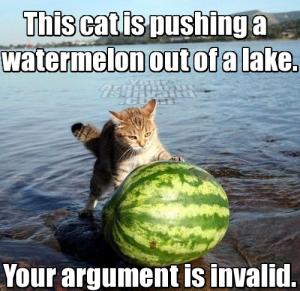aslan
Well-Known Member
IMHO, one of the flaws in the argument against it working seems to be that if it doesn't work in one case, no matter if that case is hugely improbable, then you say it doesn't work. In that case, neither does card counting work, since there is the possibility that there is one case in which the card counter never wins a single hand.
When did we stop analyzing for probability, and start analyzing for certainty? Maybe the question should be, "What is the probability that a person could win with deep pockets and no house limit using a martingale over a year's time?" Stated another way, what are the odds that a run of losses could take place to wipe out one's theoretical bankroll over a year's time? Then, instead of simply dismissing the martingale as something that doesn't work, we can evaluate it as something that works x% of the time. If x% is less than 1%, is it any different than using a similar RoR in the case of card counting? It may not be as lucrative, but it should be a winner nevertheless. I wonder what the win rate per thousand hands would be?
When did we stop analyzing for probability, and start analyzing for certainty? Maybe the question should be, "What is the probability that a person could win with deep pockets and no house limit using a martingale over a year's time?" Stated another way, what are the odds that a run of losses could take place to wipe out one's theoretical bankroll over a year's time? Then, instead of simply dismissing the martingale as something that doesn't work, we can evaluate it as something that works x% of the time. If x% is less than 1%, is it any different than using a similar RoR in the case of card counting? It may not be as lucrative, but it should be a winner nevertheless. I wonder what the win rate per thousand hands would be?


